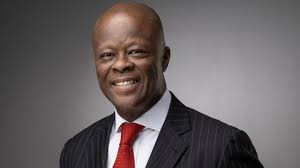.Targets N34.820trn revenue
.N13trn deficit to be financed through borrowing-Edun
The Federal Executive Council (FEC), on Monday, approved N47,960,000,000,000, which is an increase of 36.8 per cent from the 2024 estimate.
The total projected revenue for 2025 stands at N34,820,000,000,000 and a deficit ofprojected of N13,140,000,000,000, representing 3.89 per cent of GDP.
Minister of Budget and Economic Planning, Senator Abubakar Bagudu, who disclosed this while
briefing State House correspondents after the FEC meeting at the Presidential Villa, Abuja,said
President Bola Tinubu ordered some amendments to the estimate after its presentation to the Council by the Budget Office.
He hinted that the proposal would soon be presented to the National Assembly.
“The total projected revenue for 2025 stands at N34,820,000,000,000 out of which the expenditure is projected at N47,960,000,000,000, which is an increase of 36.8 per cent from the 2024 estimate.
“The deficit for 2025 is projected at N13,140,000,000,000, representing 3.89 per cent of GDP.
“If you recall, this administration inherited 6.1 from the 2023 budget. But given the success achieved in 2024 we were still able to maintain the deficit,” said the minister.
He said that the 2025 budget framework was based on a benchmark oil price of $75 per barrel, oil production of 2.06 billion barrels per day and exchange rate of N1,400 to the dollar.
“All these are already included in the Medium Term Expenditure Framework, which have also been approved by the National Assembly,” said Bagudu.
The minister said that the 2025 budget proposal articulated the Federal Government financial plan for the 2025 fiscal year and aligned it with the Renewed Hope Agenda, the National Development Plan (2021 to 2025) and the Medium-Term Expenditure Framework (MTEF).
He said that the budget was designed to build on the advances in macro economics stability, security gains, infrastructure gains, human capital development effort and creative industries and manufacturing.
Bagudu said that it was also designed to enhance all the measures that had been taken to expand economic activity, create consumer credit, National Agricultural Development Fund, gas, CNG initiative, housing initiative, to build economic activity.
.N13trn deficit to be financed through borrowing – Edun
Meanwhile, the Minister of Finance and Coordinating Minister for the Economy, Mr Wale Edun, on Monday said the N13 trillion deficit in the N48 trillion 2025 budget would be financed through borrowing.
The minister said this while briefing State House Correspondents after the Federal Executive Council (FEC) meeting at the Presidential Villa, Abuja.
Edun said the budget was designed within the context of how far and how much progress had been made under the leadership of President Bola Tinubu over the last 18 months.
“And even looking at it from an international context, we, like governments around the world, are concerned about how to achieve fiscal sustainability, revenue to expenditure and borrowing that is balanced, to create an environment in which the economy can grow.
“Private sector led economies such as ours and others, rely on investors to put down their money in various projects, increase productivity, create jobs, grow the economy and in the case of countries such as ours, bring the people out of poverty,” said Edun.
He explained that the Tinubu administration had put in place policies that ensured market pricing of petroleum products, foreign exchange, and efforts had been made to improve the pricing of electricity.
Edun said: “Just recently Shell announced a $5 billion investment, Total announced a multi-billion dollar investment just before that, and there are so many others expressing interest in investing in this country.
“So, progress has been made. There is greater fiscal sustainability and as I said, even the European countries are struggling to achieve some of these critical macroeconomic reforms.
“This budget is based on government spending in critical areas, but also more importantly, encouraging and making room for private sector investment.”
He further stated that the improvements in the economy were encouraging.
“For the first time in about 25 years we have domestic refinement of petrol, not just to produce petrol but also raw materials for industries across a whole range, from pharmaceuticals to building products to textiles,” he said.


